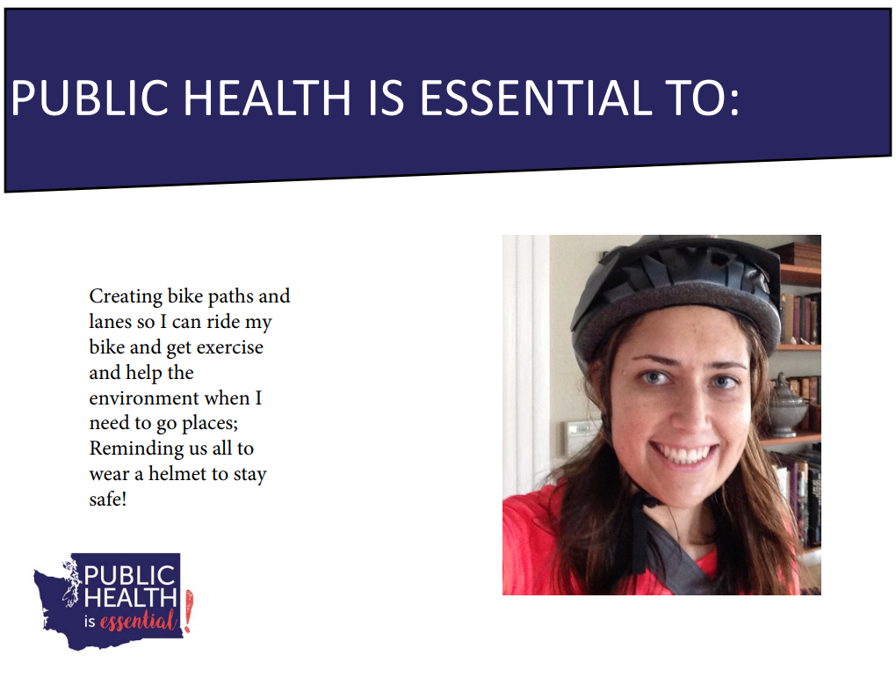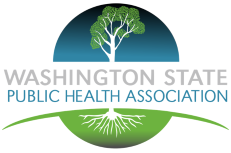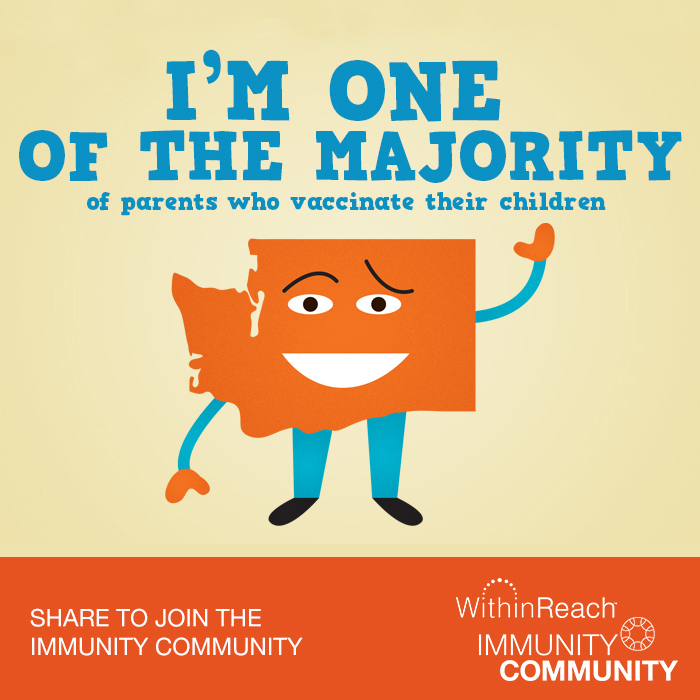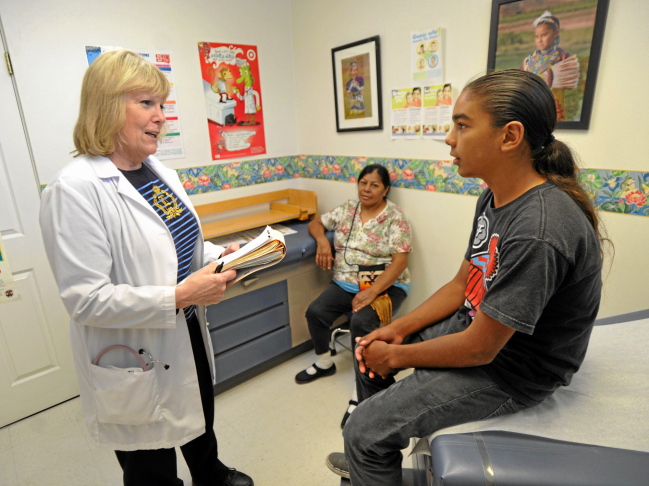Let's Talk ImmunizationBy: Mackenzie Melton and Izzy Brandstetter, WithinReach Immunization Experts
In Washington State, the majority of us vaccinate ourselves and our families. School immunization data from the 2017-2018 school year shows that 90.6% of kindergarteners are up to date on their MMR vaccine and 85.7% of kindergarteners are up to date on all of their required immunizations— putting us one-step closer to achieving the national Healthy People 2020 goal of 95% of kindergarteners being fully vaccinated. And when outbreaks do occur, it’s a great reminder for all of us that there is still much more work to be done to protect our communities and eliminate vaccine-preventable diseases. As public health professionals, the easiest way we can model positive health behavior is to get ourselves vaccinated, to speak positively and openly about vaccines and their benefits, and most importantly to listen to the concerns of parents and communities. With immunizations becoming such a hot topic over the last few years, whether among the media, public health sector, medical realm or general public; it’s spotlighted most when a disease outbreak or the threat of one is at play. With that, we know it has caused confusion and disputes that often make immunizations a difficult conversation to have. So, we hope the below recommendations are helpful as you strive to maintain the health and safety of your community through vaccination! How can we achieve immunity communities?
For healthcare professionals talking with their patients, use the Recommend, Ask, Acknowledge and Advise method. The best tool for parents to talk about immunizations with their peers is called the HEART method (Hear, Empathize, Analyze, Resources, Tell). Repeat this method with every concern they raise. Make sure to start over at the “Hear” stage to ensure you are answering their specific questions. Even if they share an anecdotal story of their own, really listen to their fear and try to understand their root concern.
So, in honor of National Immunization Awareness Month, consider strengthening an immunity community of your own! Have the courage to ask family members if they are up to date on their vaccines! Ask them if they got their annual flu vaccine, or if they’re planning to immunize their newborn. In having conversations with hesitant individuals, we’ve found that many don’t feel their fears are heard and acknowledged, and they often receive information from sources that are not credible. Listening with an open, non-judgmental mindset and educating hesitant individuals on the benefits of vaccines is significant for all of us. Use the tools above and if the going gets tough, remember that as a supporter of immunizations, you represent the majority, and your efforts are paramount to maintaining healthy and safe communities for all. WithinReach is a leader in building healthy communities in Washington State. We have been a trusted link between community-based health resources, providers, and families statewide for 30 years. We are proud of our longstanding work in the immunization sphere. WithinReach has convened the Immunization Action Coalition of Washington for 24 years, led the work on two vaccine hesitancy initiatives through our partnership with Vax Northwest, and continues to activate passionate parents, educate professionals and the media, engage community partners, and protect our community from diseases that vaccines prevent. Stay up-to-date on the work we are doing by joining our monthly newsletter. Email [email protected] if you any questions! Past blogsRethinking Our Approach for Urban Indian StudiesBy Adrian Dominguez, MS and Rose James, PhDUrban Indian Health Institute, Seattle Indian Health Board
Summer Break with or without Hunger
Adverse Childhood Experiences and Public Health By Amy Person, MD, Director, WSPHA Board of Directors
Celebrating National Public Health WeekBy Ginny Weir, MPH, Director, Bree Collaborative  April 1, 2018 Public health is essential to building a healthier Washington and stands on foundational public health services like chronic disease and injury prevention, maternal and child family health, access to clinical care, environmental public health, vital records, and communicable disease control. Although Public health week has already passed, there are still plenty of ways to get involved and advocate for a healthy community. Read more. Legislative Education Day: What Comes Next?By Heather Thomas, MPA, Public & Government Affairs Manager, Snohomish Health District  March 1, 2018 March 1, 2018
On February 7, more than 150 public health ambassadors from around the state gathered in Olympia for our annual WSPHA Legislative Education Day. The morning session kicked off with a welcome from WSPHA president David Reyes, followed by remarks from Secretary of Health John Wiesman. Secretary Wiesman shared his perspectives on a variety of public health issues at the state and federal level. Read more Legislative Education DayBy Anne Burkland, Government Relations Specialist, Public Health Seattle and King County 
February 1, 2018
Join public health officials from across the state and have your voice heard at our annual legislative education day on February 7, 2018.Your day will begin with Secretary of Health John Wiesman. You’ll also hear from state lawmakers and your colleagues who are leading the charge for more funding dedicated to public health. You’ll be provided talking points and an opportunity to develop and practice the key messages you want your representatives to hear. Read more The Opioid Epidemic in WashingtonBy Ginny Weir, Program Director, Dr. Robert Bree Collaborative  January 1, 2018The opioid epidemic has impacted every community in Washington State. Across the country, opioid overdose is now the leading cause of accidental death. But some counties are hit harder than others and disparities exist between how racial and ethnic groups are burdened with the epidemic. Solutions must be both based in local communities and supported across the state. Our Washington state opioid response plan calls on all of us, state government agencies, local health departments, professional groups, community organizations, health care systems, and others to work together on priority areas. Read more January 1, 2018The opioid epidemic has impacted every community in Washington State. Across the country, opioid overdose is now the leading cause of accidental death. But some counties are hit harder than others and disparities exist between how racial and ethnic groups are burdened with the epidemic. Solutions must be both based in local communities and supported across the state. Our Washington state opioid response plan calls on all of us, state government agencies, local health departments, professional groups, community organizations, health care systems, and others to work together on priority areas. Read more
|





